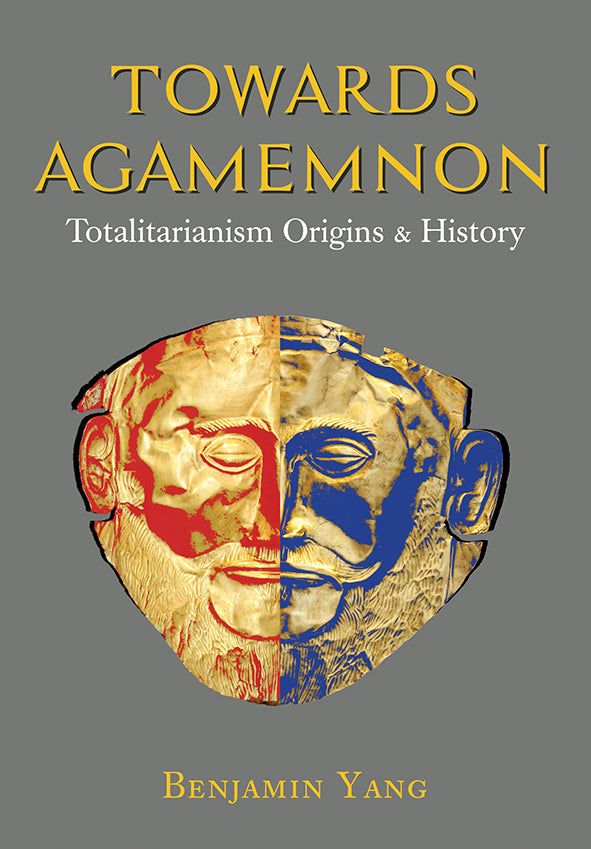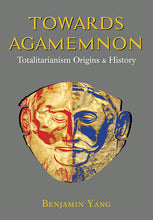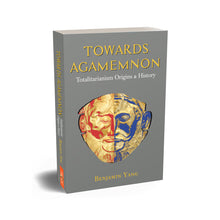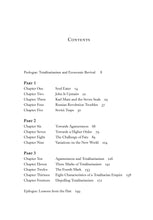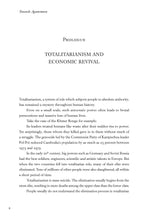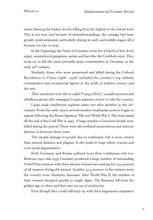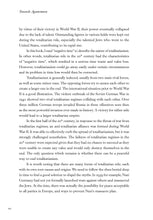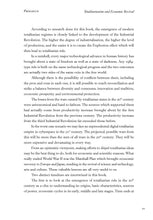Towards Agamemnon: Totalitarianism Origins & History
玲子传媒 Lingzi Media
Regular price
$25.00
$22.50
Sale
Author: Benjamin Yang
Category: Cultural studies
ISBN: 978-981-5099-14-0
One of the most striking phenomena of the 20th century is totalitarianism. In both Europe and Asia different types of totalitarian states and political organisations have emerged fomenting global hatred wars and massacres of civilians. Nearly 200 million people were killed as a result of totalitarian wars and political cleansing of populations.
The totalitarian catastrophe of the last century continues to have a profound impact on global politics and economy in the 21st century. For politicians business leaders and civilians around the world it is impossible to ignore the many problems caused by totalitarianism. The technological revolutions cultural expressions and changes in business models that we are experiencing are all closely related to it.
This book traces the origins of totalitarianism from ancient literature to events in the last century.
About the Author
Benjamin Yang was born in China in 1972. A long-time resident in Southeast Asia he has work experience in broadcasting research and teaching at Central South University and Hainan University primarily in philosophy and dramaturgy.
He has published more than 20 academic papers and his major publications include The Cat in the Closed Chamber: The Concept of Time and Space and the Collective Subconscious (2013) which discusses how different human communities often have different conceptions of space and time and Drama and the Rise of Great Powers (2017) which points out that the birth of every modern western power has been accompanied by the emergence of an iconic theatre master.
This book Towards Agamemnon: Totalitarianism Origins & History is the result of his years of research and study in philosophy history politics and literature of both the Western and Eastern worlds.
Author's words:
I lived in Phnom Penh Cambodia during the Covid-19 pandemic. It is a beautiful and romantic city in the Far East. But the shadows of death seems to be creating in a hidden cycle of time. The S-21 Concentration Camp where tens of thousands of people under the Khmer Rouge’s totalitarian rule was just a fraction of the two million Cambodians who were killed in the political cleansing of the population.
John and I used translation software to exchange views on politics including totalitarianism. The Red Revolution of the last century was like a horrific ideological viral outbreak that killed tens of millions of people during the Bolshevik Revolution the Chinese Cultural Revolution and the Khmer Rouge totalitarian rule. The recollections of those horrific periods have indeed diverted our anxiety over Covid-19.
My colleague Professor K came to join me in Phnom Penh. For a fortuitous reason he led me to discover a secret. There exists a literary tradition in the history of the West that is 2500 years old a tradition which had produced the world’s most famous plays and films.
The literary tradition contains the source of power of the West’s resistance to totalitarianism over the years. The Marxist regime and the Nazi forces created the apocalyptic landscape of the 20th century but they lost out to this tradition in the end.
This book provides the link between that tradition and causes of totalitarianism through the ages especially those during the 20th century.
This book traces the origins of totalitarianism from ancient literature to events in the last century.
 Skip to content
Skip to content

